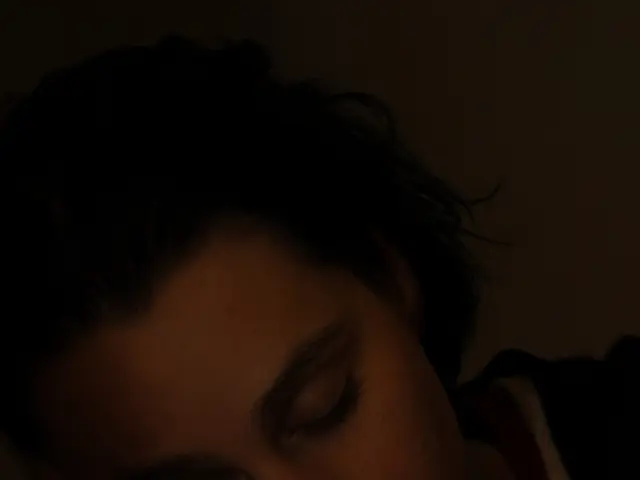Regular Nightly Toilet Visits: Understanding Frequency Norms During Sleep
Waking Up Frequently at Night? Here's the Lowdown on Nocturia 🛎️💦
Many of us have experienced the middle-of-the-night dash to the bathroom, but for some, this routine becomes a recurring nightly ordeal. If you're frequently waking up to pee, you may be dealing with a condition known as nocturia. Let's get to the bottom of it. 🔍
So, Why Are You Making So Many Trips to the Restroom Every Night?
There could be various reasons why your sleep is being disrupted by frequent calls of nature. Sometimes, it might not even be your bladder giving you trouble, but rather issues with your sleep quality.
In many other cases, though, there's indeed a pressing bladder situation, and the possible causes are numerous:
- Heart conditions 🤕: Nocturnal urges could be due to problems in the heart area, such as heart failure or irregular heartbeat.
- Medications 💊: Certain heart medications or blood pressure drugs could contribute to nocturia, especially when taken late in the day or if they have a diuretic effect.
- Pressure on the bladder 🎯: If the bladder has a low capacity, it may feel full more quickly, even during the night. In men, an enlarged prostate could be pressing on the bladder, while in women, a prolapsed uterus or pelvic floor issue might cause an overactive bladder.
- Psychological factors 🧠: Stress, anxiety, or other psychological stressors can lead to an overactive bladder.
- Excessive urine production 💧 (polyuria): This could be due to poorly controlled diabetes or other conditions affecting urine production.
Habits That Might Be Affecting Your Bathroom Breaks
Your urination habits might also be influenced by your drinking behaviors. It's essential to analyze your fluid intake and note down the frequency of your toilet visits for at least two days.
If you're regularly waking up more than twice a night to go to the bathroom, you should consider consulting a healthcare provider. They can help determine the underlying cause and suggest appropriate treatment options. 👩⚕️🩺
Some Simple Steps to Alleviate Frequent Nighttime Urination
- Spread out fluid intake: Drinking evenly throughout the day can help.
- Avoid certain beverages: Some drinks, such as tea, soft drinks, and caffeinated beverages, can have a diuretic effect, so it's best to limit or avoid them in the evening.
- Pelvic floor exercises: For women, these exercises can help improve bladder control and reduce nighttime urination.
Treatment options for nocturia depend on the cause and may include medications, behavioral therapies, or, in some cases, surgery. It's always best to consult a health professional to address the underlying cause and select the most appropriate treatment plan.
Remember, occasionally waking up once or twice at night is normal, but regular nighttime bathroom visits can disrupt your sleep and wellbeing. By understanding the possible causes and implementing some simple lifestyle changes, you can enjoy a restful and uninterrupted night's sleep. 😴
- The causes of nocturia, or frequent nighttime urination, can stem from various sources including heart conditions, certain medications, pressure on the bladder due to various factors, psychological factors, excessive urine production, and habits linked to fluid intake.
- If you're waking up more than twice a night to go to the bathroom on a regular basis, it's advisable to consult a healthcare provider to determine the underlying cause and explore treatment options, which could include medications, behavioral therapies, or surgery.
- To alleviate frequent nighttime urination, consider spreading out your fluid intake throughout the day, avoiding certain beverages like tea, soft drinks, and caffeinated beverages in the evening, and incorporating pelvic floor exercises for women to improve bladder control and reduce nighttime urination.








